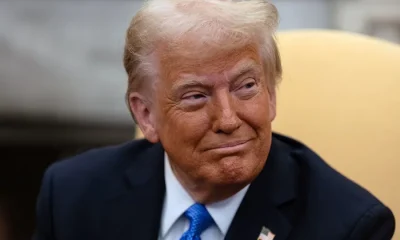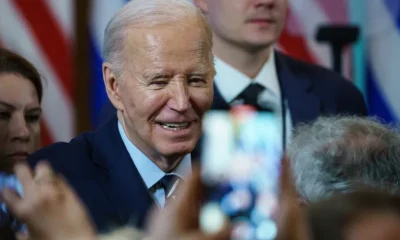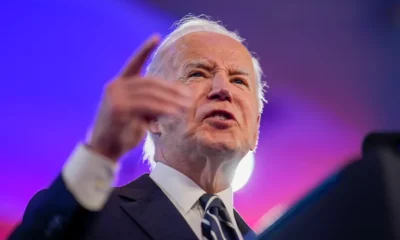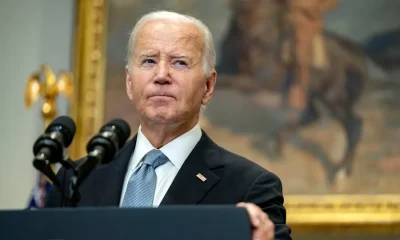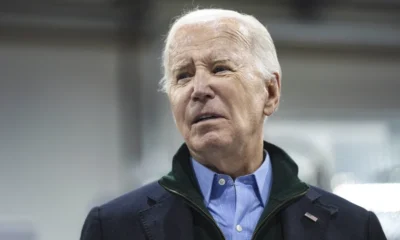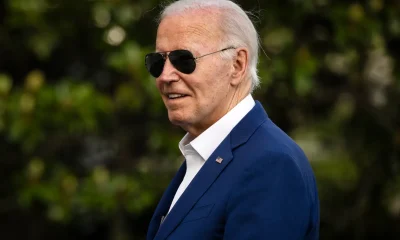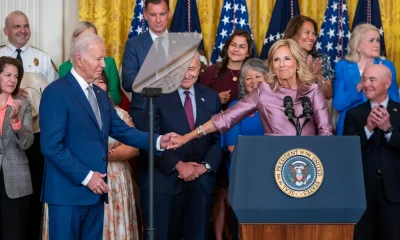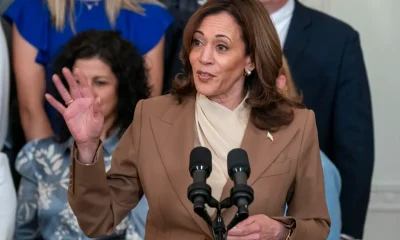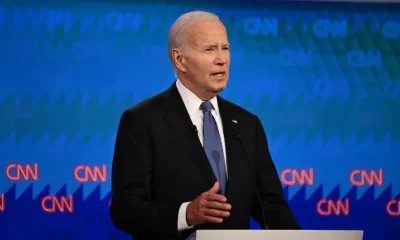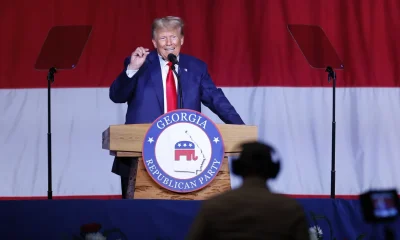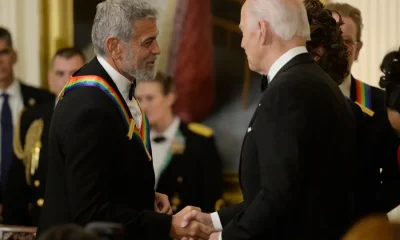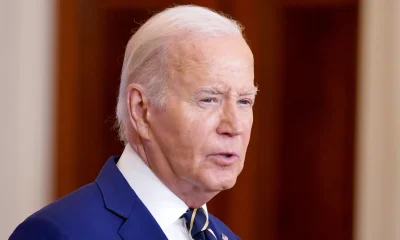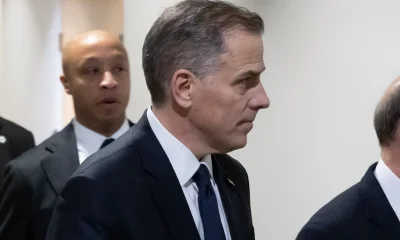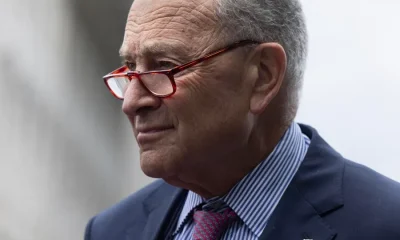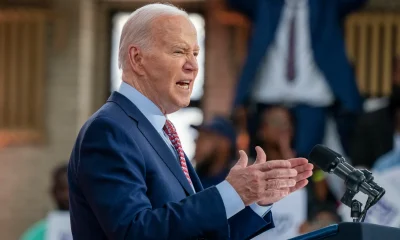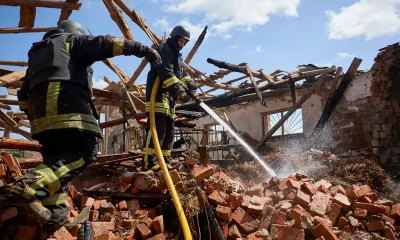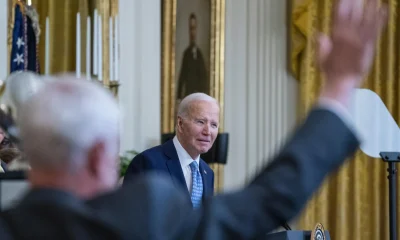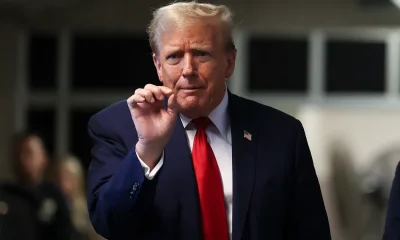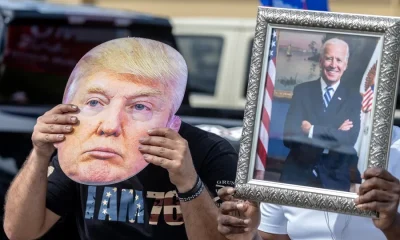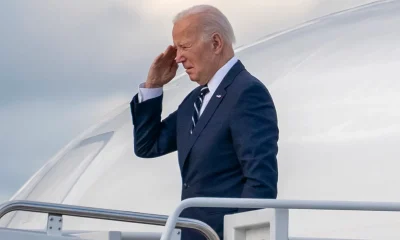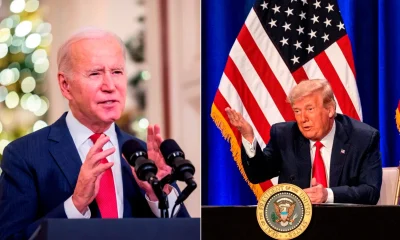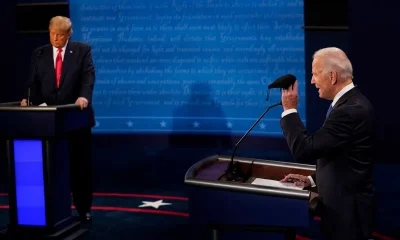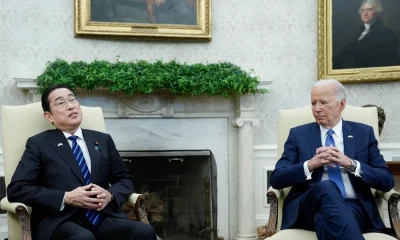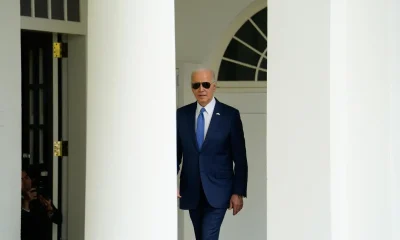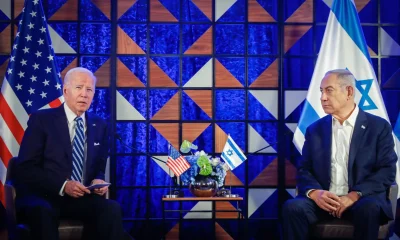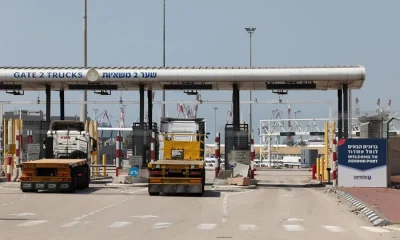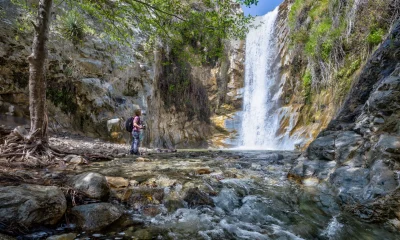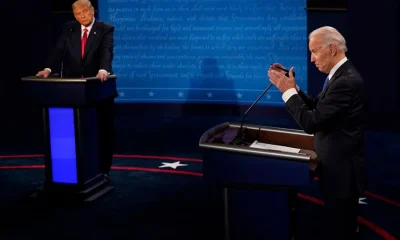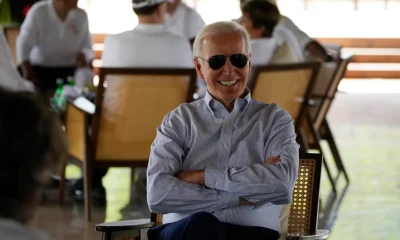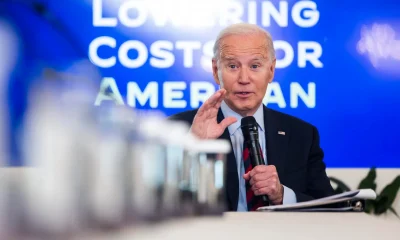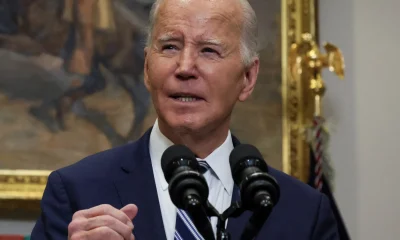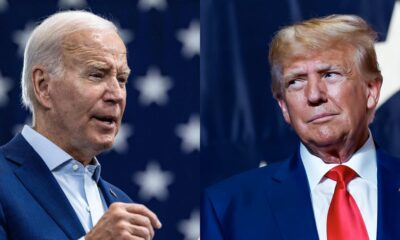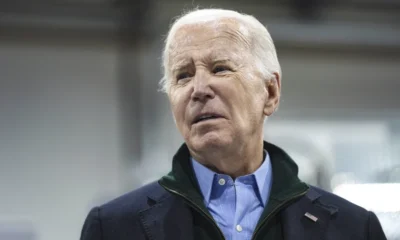International
US Supreme Court hears challenge to Biden admin immigration policy
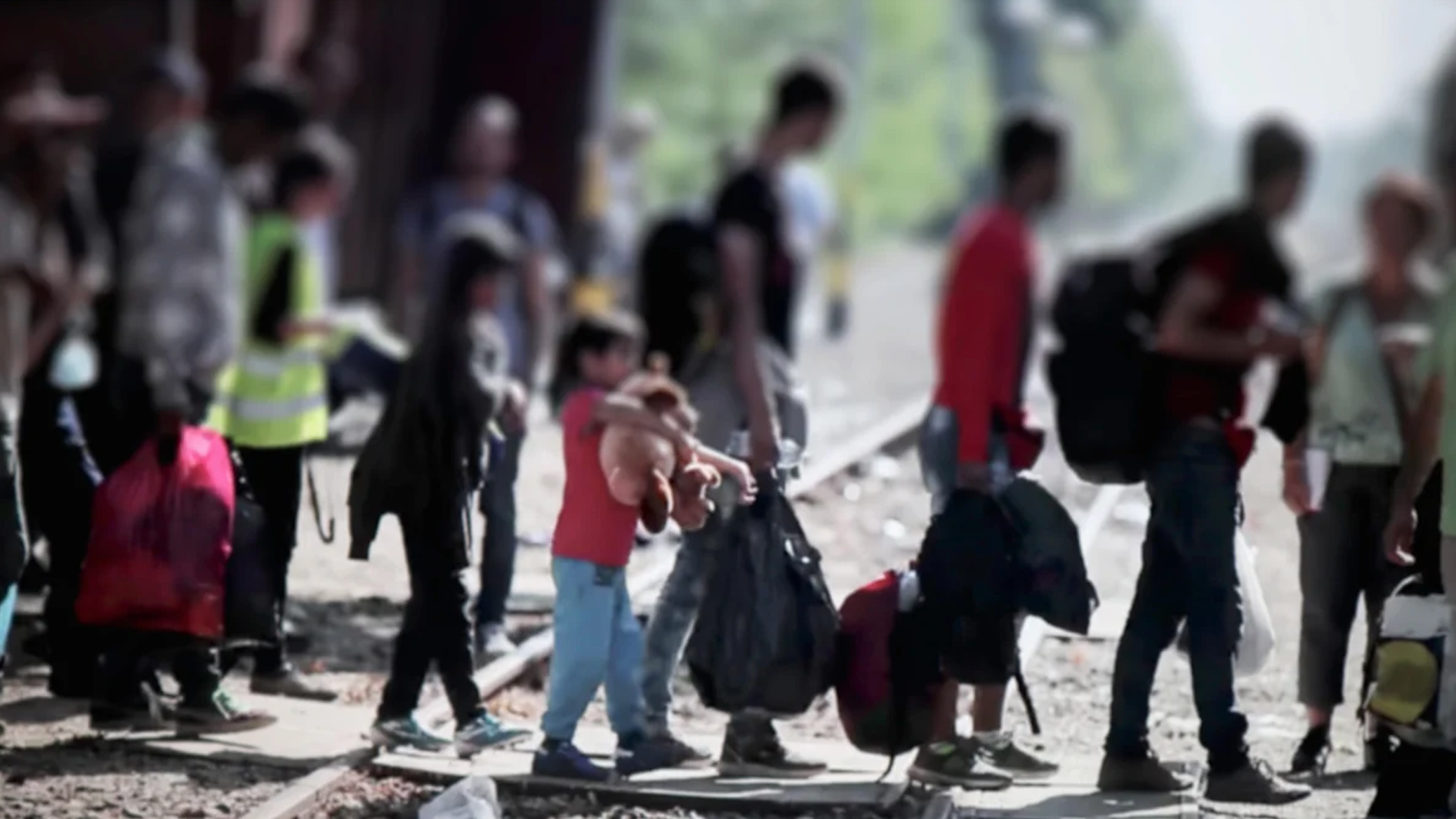
| By AFP | Chris Lefkow |
The US Supreme Court heard arguments on Tuesday in a case brought by border state Texas challenging the federal government’s right to decide which undocumented migrants should be targeted for deportation.
Defending the Biden’s administration’s policy, Solicitor General Elizabeth Prelogar said the federal government has to prioritize its efforts because it does not have the resources to pursue the 11 million undocumented “noncitizens” in the country.
“This is not about reducing enforcement of the immigration laws, it’s about prioritizing limited resources to say go after Person A instead of Person B,” Prelogar said.
After more than two hours of arguments, the nine justices on the conservative-majority court did not appear to fall clearly on one side or the other of the case, which also raises thorny questions of the legality of state challenges to federal policies.
“It means that states can challenge the federal government on any policy with which they disagree,” Prelogar said. “Federal courts should not be transformed into open forums for each and every policy dispute between the states and the national government.”
Texas filed suit after the Department of Homeland Security, in a September 2021 memo, instructed US Immigration and Customs Enforcement (ICE) to concentrate expulsion efforts on persons who “pose a threat to national security, public safety, and border security.”
“We do not have the resources to apprehend and seek the removal of every one of these noncitizens,” Homeland Security Secretary Alejandro Mayorkas said. “Therefore, we need to exercise our discretion and determine whom to prioritize for immigration enforcement action.”
Texas solicitor general Judd Stone said prioritizing expulsion of undocumented migrants to certain categories of persons would impose costs on the state, which shares a border with Mexico and is an entry point for hundreds of thousands of immigrants every year.
“Texas suffers injuries, regardless of what it does, whether it detains, releases or paroles individuals because we have not only law enforcement costs, but social services costs and very serious threats of recidivism,” Stone said.
‘Zenith of federal power’
Elena Kagan, one of the three liberal justices on the court, appeared skeptical about the costs argument and the potential danger of limiting federal authority.
“Immigration policy is supposed to be the zenith of federal power,” Kagan said. “And instead, we’re creating a system where a combination of states and courts can bring immigration policy to a dead halt.
“We’re going to be in a situation where every administration is confronted by suits by states that can, you know, bring a policy to a dead halt, to a dead stop, by just showing a dollars worth of costs,” Kagan said.
Conservative Justice Brett Kavanaugh asked the Texas solicitor general what would happen if the court rules in favor of Texas, whose Republican governor has been sending busloads of immigrants to Democratic-ruled states.
“If you prevail here, what will happen?” Kavanaugh said. “That’s a concern because I’m not sure much will change because they don’t have the resources to change.”
The Biden administration’s move to target individuals considered a threat to national security or public safety for deportation represented a shift from the policy of the administration of former president Donald Trump, which called for the expulsion of “all removable aliens.”
The Biden policy was immediately challenged by several Republican-led states as being too narrow and was blocked by a court in Texas.
The Supreme Court is expected to issue its ruling by the end of June.
International
Iran Reports 201 Dead, 747 Injured After U.S. and Israeli Strikes

The Iranian Red Crescent Society reported Sunday night (local time) that at least 201 people were killed and 747 injured following attacks carried out by Israel and the United States against the Islamic Republic.
A spokesperson for the humanitarian organization said more than 220 rescue teams have been deployed across affected areas and that relief operations are continuing without interruption. The official highlighted the difficulty of treating the large number of wounded and the urgent need for additional resources in impacted provinces.
Out of Iran’s 31 provinces, 24 have reported damage, according to a statement carried by the Isna news agency. This marks the first overall casualty toll released by Iranian state-affiliated media since the launch of the offensive.
Among the dead are 85 schoolgirls from a school in the southern city of Minab, according to the country’s judiciary. “The number of martyrs at the Minab girls’ school has risen to 85,” the local prosecutor’s office said, as quoted by the judiciary’s website, Mizan Online.
Iranian President Masud Pezeshkian described the attack as a “savagery” that “constitutes a new black page in the record of countless crimes committed by the aggressors.”
Meanwhile, the international community continues to monitor the situation closely amid concerns about possible further reprisals and the broader impact on Middle East stability, energy markets, and global security.
AFP noted that it was unable to independently verify the casualty figures or the circumstances surrounding the events.
International
Pope Leo XIV Urges End to ‘Spiral of Violence’ in Middle East

Pope Leo XIV on Sunday called for an end to the “spiral of violence” in the Middle East, following military strikes by the United States and Israel against Iran and subsequent retaliatory bombardments in the region.
“Faced with the possibility of a tragedy of enormous proportions, I urge the parties involved to assume their moral responsibility and stop the spiral of violence before it becomes an irreparable abyss,” the pontiff told the crowd gathered in St. Peter’s Square at the Vatican.
Speaking during the Angelus prayer, the U.S.-born pope said stability and peace cannot be achieved through threats or weapons. “Stability and peace are not built with reciprocal threats or with arms that sow destruction, suffering and death, but only through reasonable, sincere and responsible dialogue,” he declared.
The leader of the world’s 1.4 billion Catholics also called for diplomacy to “regain its role” amid escalating tensions.
In addition, the pope urged Afghanistan and Pakistan to urgently resume dialogue after several days of clashes between the two countries.
International
Security Council to Hold Emergency Meeting on Middle East Crisis

UN Secretary-General António Guterres on Saturday condemned the “military escalation in the Middle East” following attacks by the United States and Israel against Iran and Tehran’s retaliatory strikes, just hours before an urgent meeting of the UN Security Council.
“I call for the immediate cessation of hostilities and de-escalation,” Guterres said in a statement.
The Security Council is scheduled to meet on Saturday at 21:00 GMT (4:00 p.m. in New York) to address “the situation in the Middle East,” the United Nations announced.
The meeting, during which Guterres will deliver remarks, was convened at the request of France, Bahrain, Colombia, Russia and China, according to a diplomatic source.
-

 International5 days ago
International5 days agoFamily of “El Mencho” Seeks Return of Body After Deadly Military Operation
-

 International5 days ago
International5 days agoLarry Summers Steps Down from Harvard Role Amid Epstein Controversy
-

 International5 days ago
International5 days agoIran’s President Optimistic Ahead of Geneva Nuclear Talks with U.S.
-

 International5 days ago
International5 days agoBill Gates Admits “Serious Mistake” Over Epstein Ties
-

 International5 days ago
International5 days agoStephen Hawking Photo Appears in Newly Released Epstein Documents
-

 International4 days ago
International4 days agoCocaine Production Surges 34% in 2023 as Market Expands into Africa and Asia
-

 International3 days ago
International3 days agoTrump Floats “Friendly Takeover” of Cuba Amid Rising Tensions
-

 International22 hours ago
International22 hours agoIran Reports 201 Dead, 747 Injured After U.S. and Israeli Strikes
-

 International4 days ago
International4 days agoFederal Judge Blocks Trump Policy Allowing Deportations to Third Countries
-

 International22 hours ago
International22 hours agoPope Leo XIV Urges End to ‘Spiral of Violence’ in Middle East
-

 International3 days ago
International3 days agoArgentina’s Senate Reviews Milei-Backed Labor Overhaul
-

 International2 days ago
International2 days agoSecurity Council to Hold Emergency Meeting on Middle East Crisis
-

 Sin categoría2 days ago
Sin categoría2 days agoTrump: ‘We Think It’s True’ Amid Claims Iran’s Supreme Leader Was Killed
-

 International4 days ago
International4 days agoClinton Accuses Republican Committee of Using Epstein Case to Shield Trump



























